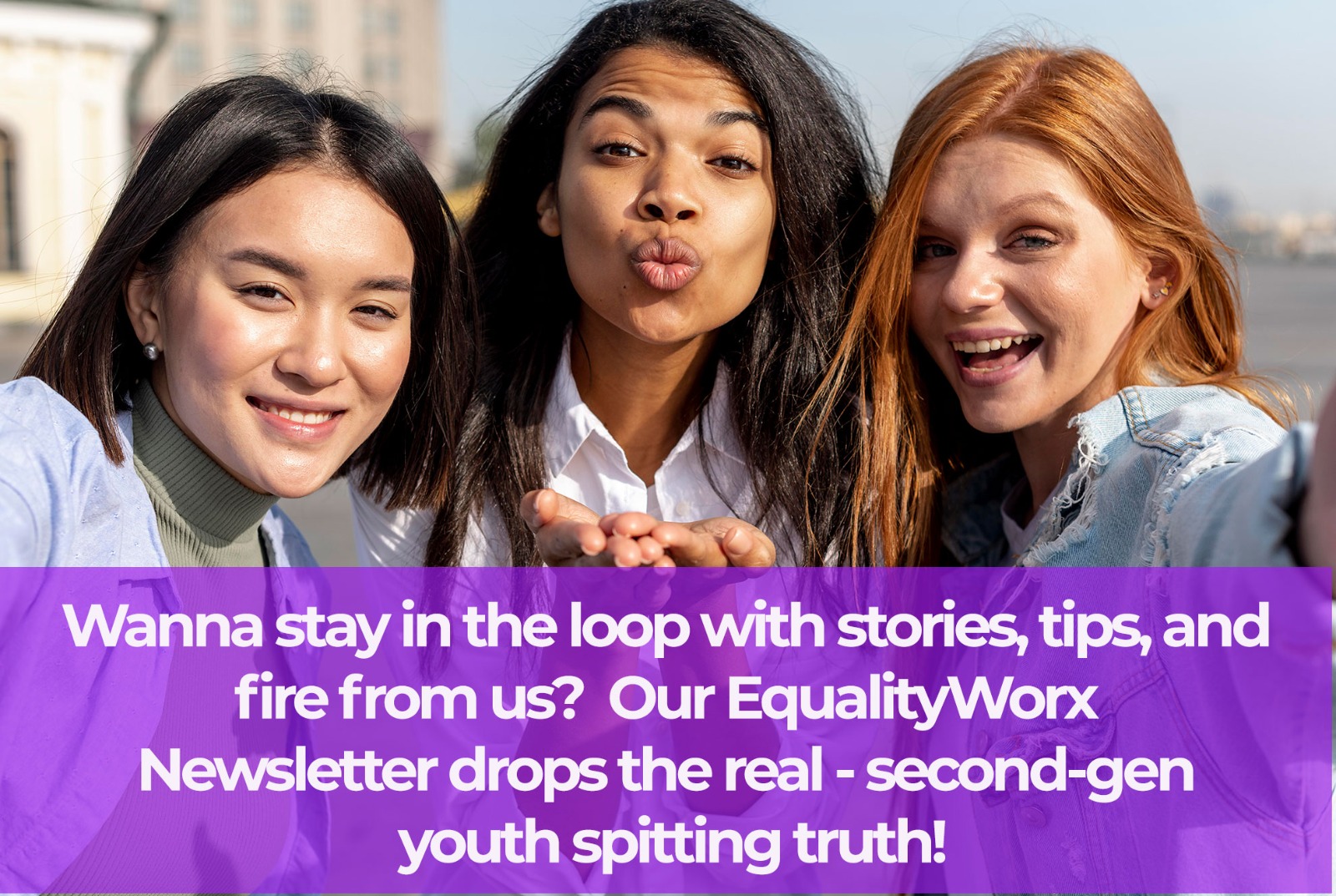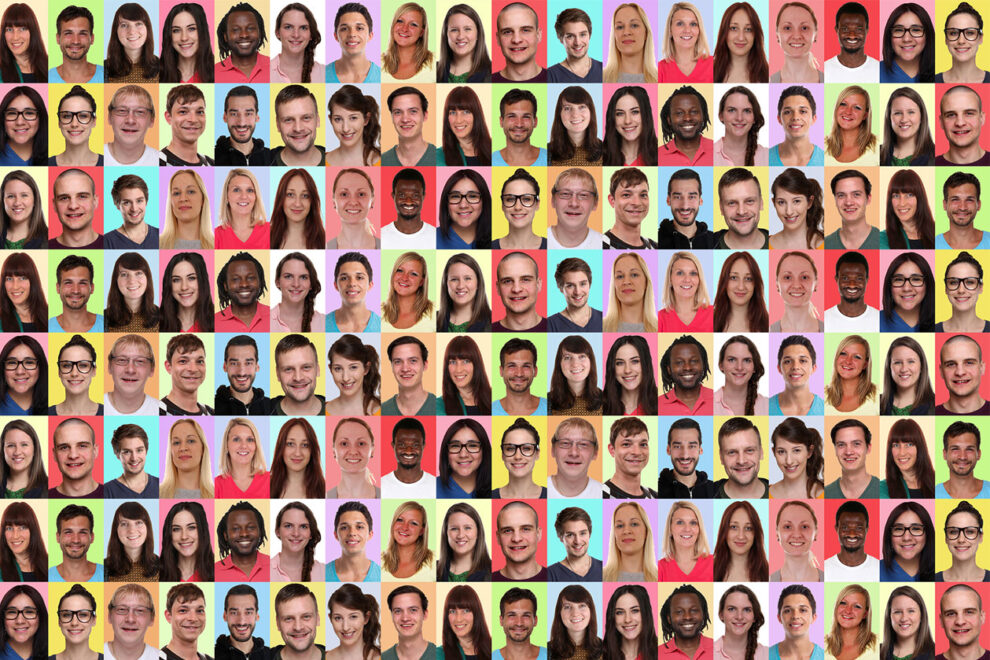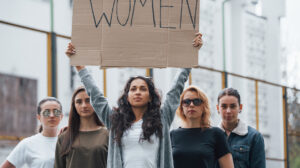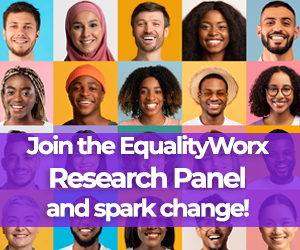What’s Up, EqualityWorx Fam? When we talk about being “second-gen” in Ireland, we’re not describing one single story – we’re talking about a vibrant mosaic of experiences shaped by how (and why) your families arrived here. Some of you are the children of doctors, engineers, and IT specialists who came to Ireland on skilled work visas – stepping into new opportunities with a sense of purpose and possibility. Others grew up in the shadows of Direct Provision or international protection, shifting between temporary accommodations and navigating daily uncertainty. Where you land on that spectrum shapes everything:
- How you speak
- The chances you get
- How much you feel you belong
- Even your mental health
It’s the difference between feeling at home in a lively, multicultural city or feeling like a stranger in a quiet rural town. Between seeing endless possibilities ahead or constantly running up against invisible walls.
Urban Roots: Where Most Second-Gen Stories Begin
Cities are where most second-gen Irish stories unfold – and it’s no accident. Urban centres like Dublin, Cork, Galway, and Limerick are magnets for opportunity. They’re where:
- Jobs are clustered
- Schools are more diverse
- Public transport gives you freedom and access
- Multicultural communities – from mosques to Brazilian football teams – help you stay rooted while growing new wings
Imagine sitting in classrooms with students from every continent. Joining after-school clubs for music, sport, coding, or art. Navigating the city with confidence. Finding mentors who actually understand where you’re coming from. Research shows that multicultural interactions – more common in cities – can reduce exclusion and foster a stronger sense of belonging among second-gen youth.. If your parents came here on a skilled visa, chances are you’re in a well-resourced school, living in a diverse neighbourhood, and dreaming big.
The Rural Reality: Isolation, Visibility and Gaps
But rural Ireland tells a different story. When migrant families are placed in rural hotels or Direct Provision centres – far from towns, jobs, or even public services — the result is often isolation, invisibility, and sometimes hostility. And for the young people growing up there, the impacts are real:
- No public transport, so you’re stuck unless your parents drive
- Being the only brown or Black face in your school, constantly under a spotlight
- A shrinking world defined by four walls and limited opportunity
- Suspicion or coldness from neighbours, often rooted not just in racism, but in fear, frustration, or feeling ignored by policymakers
Rural placement without support can rob young people of the freedom to dream, leaving them feeling like guests in their own country.
Two Second-Gens, Two Irelands
Here’s the truth no one says out loud: not all second-gen kids have the same shot at “becoming Irish.”
If your parents arrived with degrees and job offers, you probably:
- Go to well-funded schools
- Take part in extracurriculars
- Have the social and educational networks to thrive
But if you grew up in Direct Provision or with international protection:
- You may have moved town multiple times
- Missed out on sport, music, or trips
- Struggled with stress, stigma, and mental health
- Had to grow up fast in a system built around waiting and uncertainty
This isn’t just about assimilation — it’s about access, dignity, and fairness.
Second-Gen Gen Z: Redefining Irishness
Assimilation isn’t about knowing the anthem or having the “right” accent. It’s about having the chance to thrive. It’s about being seen, heard, and valued. Second-gen Gen Z are blending cultures, creating new narratives, and changing what it means to be Irish. You’re showing that identity is not fixed – it’s dynamic, creative, and evolving. You’re not just fitting in; you’re building something new.
What Needs to Change
To create one Ireland – not two – we need serious action:
- Stop random rural placements. Isolation is not integration.
- Invest in rural infrastructure – transport, youth services, and community spaces.
- End Direct Provision. Replace it with housing and real integration supports.
- Level the playing field – access to mental health support, extracurriculars, and pathways to higher education or apprenticeships must be for all, regardless of status or income.
- Centre second-gen voices in policymaking. The people living these realities should help shape the future.
EqualityWorx’s Call: Write Ireland’s Future
Second-gen Gen Z – you are the future of Ireland. You are the artists, teachers, athletes, entrepreneurs, and changemakers. But too many of you are being held back by systems you didn’t create. We want to hear from you. Write a 300 – 500-word story at equalityworx.com/share. Post a video on TikTok with the hashtag #EqualityWorxVibe.
Tag us at @EqualityWorx – we’ll lift your story up and amplify your message. Let’s build an Ireland where no one gets left out. One Ireland – shaped by all of us.
Share this content:
Join the EqualityWorx Vibe!



















